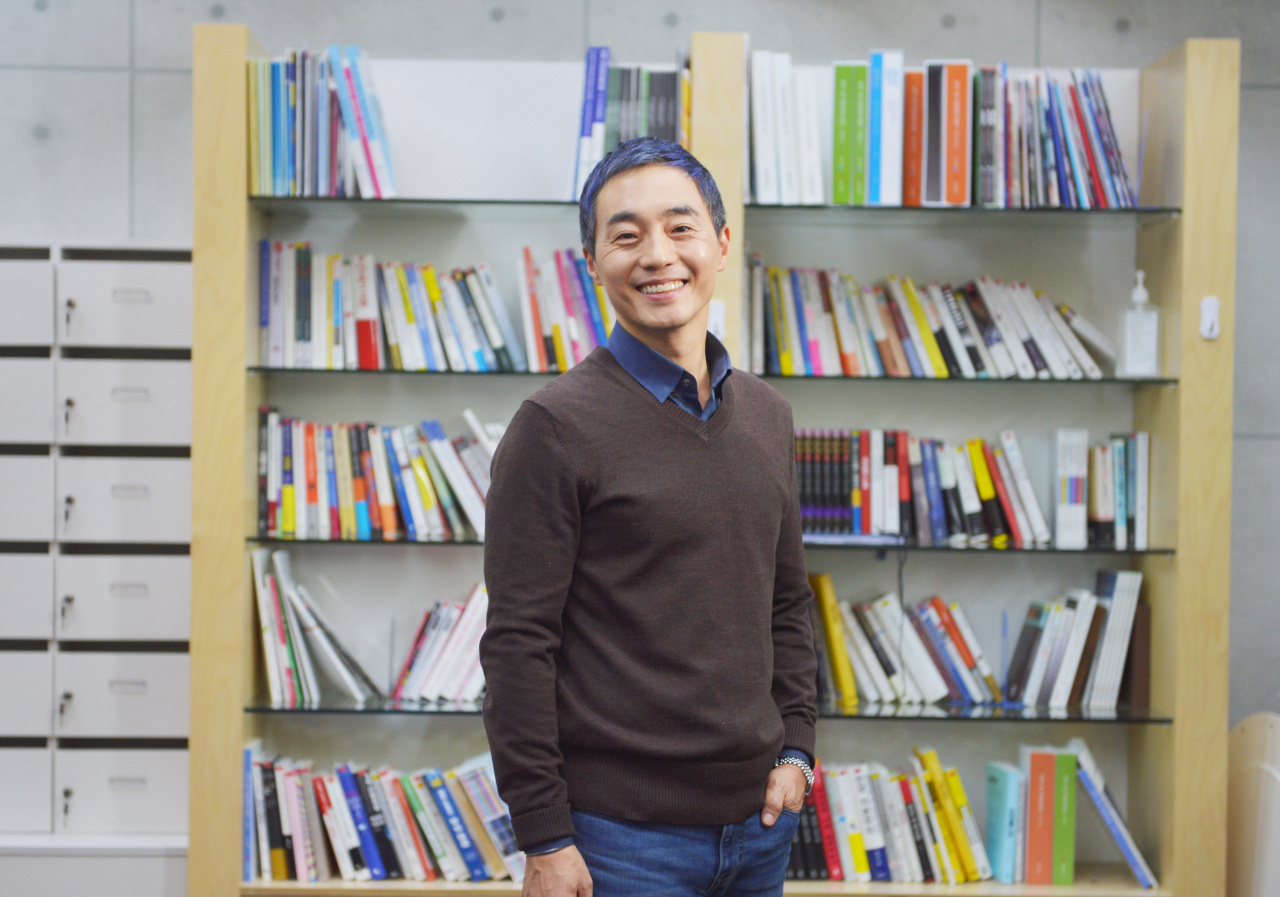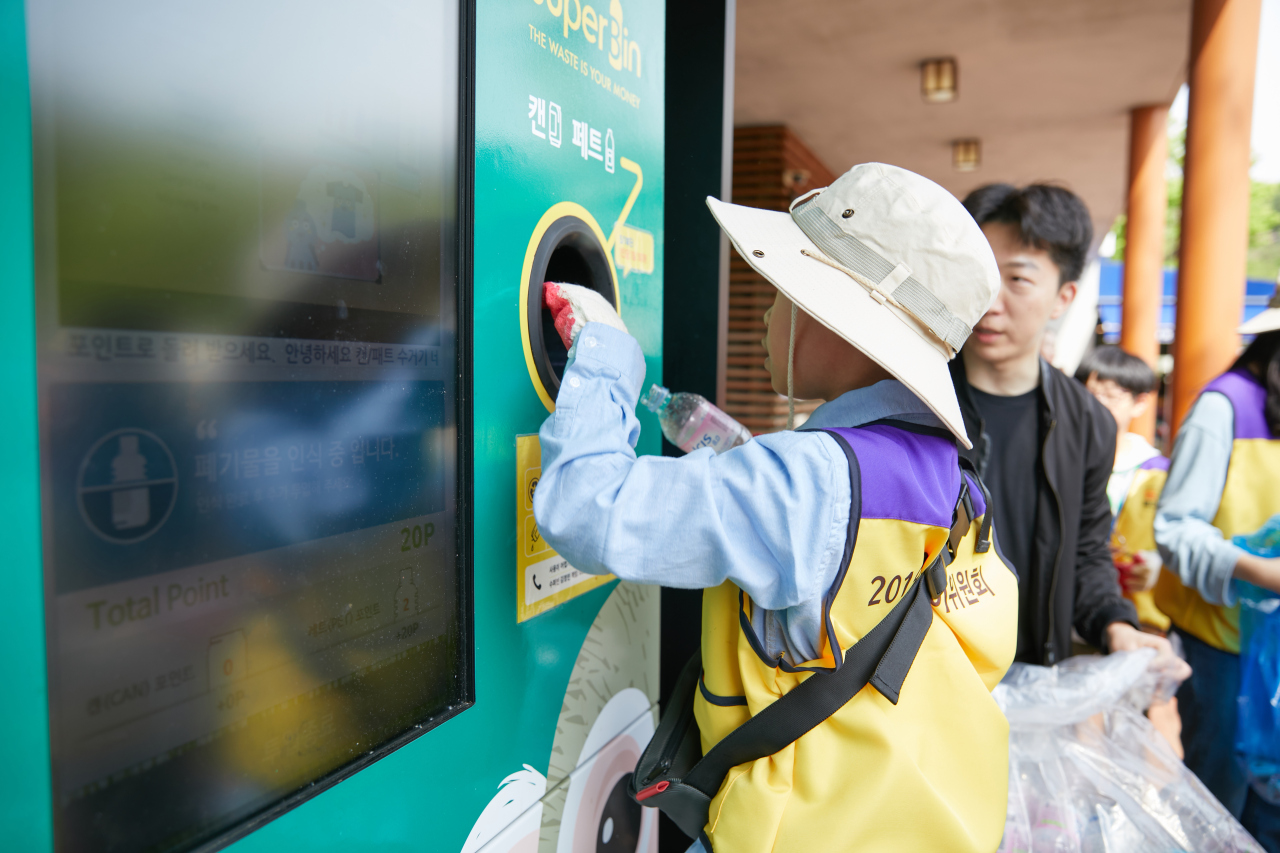Startups
Betting on money-for-waste business model
Pictures of dead or dying sea turtles, whales and birds have gone viral recently, warning of an escalating waste problem that causes animals to choke on plastic debris.
Although such heartbreaking pictures are effective in increasing awareness about environmental issues, they often fall short of motivating the general public to reduce their waste output in the long term.
To build momentum for saving the earth, a South Korean recycling startup offers financial incentives for recycling as a way of creating a new recycling culture.
 |
Kim Jeung-bin, CEO of recycling startup SuperBin (SuperBin) |
“Waste is the result of the modern society where people have long sought out comfort and material abundance through mass production and consumption,” Kim Jeung-bin, the CEO of recycling startup SuperBin, told The Investor in an interview at the firm’s office in Bundang, Seongnam, Gyeonggi Province.
“We cannot completely solve the waste problems only with certain technology or NGOs’ campaigns, so SuperBin is trying to create a new culture in which people consider recycling as a fun game and garbage is something they can turn into money.”
The startup’s recycling solutions include a reverse vending machine called Nephron, a waste supermarket where people can purchase recycled products, and a logistics chain for recyclable items.
Consumers can receive 15 points, worth 15 Korean won or 1.2 cents, for recycling an aluminum can in the sorting machine installed at the waste market. For a plastic bottle, the reward is 10 points. Once it is placed in the machine, the can or bottle is automatically scanned by cameras installed inside and flattened after it gets the green light for recycling. The rewards can either be transferred to SuperBin customers’ bank accounts or used to buy bags, T-shirts and stuffed dolls at the market -- all of which are made of recycled materials.
“The rewards are up to 10 times higher than those offered by conventional scrapyard operators,” said Kim, criticizing the current recycling system and saying it exploits the labor of elderly people living in poverty, who often earn a meager income by collecting and selling recyclables.
In contrast, SuperBin recyclers in the top 15-20 percent bracket earn up to 300,000 won worth of points every month, while those at the very top receive 1 million points per month. The collected items are stored in the startup’s storage facilities for a while before being sold to materials firms that melt or mold the bottles and cans into something new.
 |
SuperBin customers recycle plastic bottles in Seoul with the reverse vending machine Nephron. (SuperBin) |
The secret to being able to give larger rewards is that the startup’s solution can help communities save on the costs of running their recycling infrastructure.
Artificial intelligence-powered Nephrons can separate recyclable and non-recyclable items -- a job that is usually done manually by workers right before waste is either buried or burned.
Waste disposal sites are required by law to be equipped with recycling facilities. But recycling work -- which involves sorting, collecting and delivering bottles and cans -- is considered inefficient and unprofitable because of its high overhead costs and labor-intensive nature.
A Nephron, on the other hand, comes with many benefits, according to the firm.
The vending machine, which takes up little space and features a user-friendly design, can help solve a range of issues stemming from the traditional waste management system, such as not-in-my-backyard sentiment and the resulting shortage of landfill sites.
Local governments like Gumi, North Gyeongsang Province, for example, have a waste disposal capacity of 200 tons a day, not enough to meet their communities’ needs.
Of the waste the cities handle, approximately 30 percent is recyclable. For about 2.1 billion won, 100 Nephrons could be purchased to take care of a city’s recycling needs.
But a new waste management site -- complete with incinerators, landfills and recycling facilities -- would cost 10 billion won to build and 4 billion won a year to operate.
“Eighty-five Nephron units are now up and running across the nation as of August. The number will likely increase to some 200 this year, and hopefully 500 until next year,” said Kim, who earned a doctorate in economics from Cornell University and studied at the Harvard Kennedy School. He also led a steel company in Korea.
By the time SuperBin has 500 Nephrons, it will be able to run a flake factory capable of turning collected plastic items into shredded plastic that can be used to manufacture new plastic products. A single flake factory can generate some 50 billion won in sales, according to Kim.
The CEO also said he has thought about exporting the firm’s recycling solutions to less developed nations that lack adequate waste management infrastructure.
By Kim Young-won (wone0102@heraldcorp.com)








